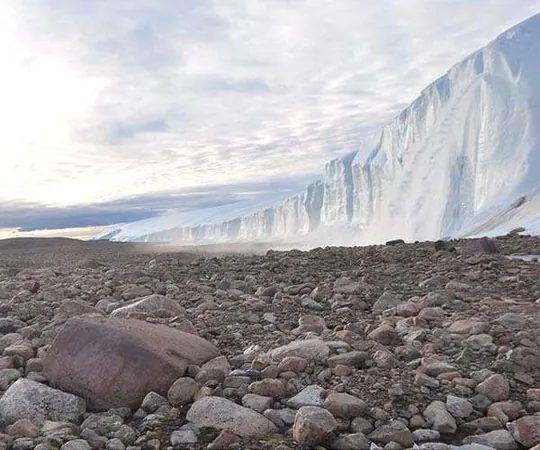
Shocking Study Reveals Oceans Were Far More Efficient at Storing Heat During Last Ice Age!
2024-09-22
Introduction
In a groundbreaking revelation from a recent study published in Science Advances, researchers from China and the USA have uncovered astonishing data regarding ocean heat storage efficiency during the last deglaciation, a time when the Earth was emerging from the last Ice Age. The findings suggest that the ancient oceans were capable of storing heat ten times more efficiently than today’s oceans, drastically changing our understanding of climate dynamics.
Historical Context
The global ocean, accounting for over 90% of the excess heat trapped by anthropogenic warming, has primarily shown warming effects in its upper 500 meters over the last century. Historically, this heating was modest, with an efficiency rate of around 0.1. However, paleoceanographic data reveals that during the last deglaciation, which occurred approximately 20,000 years ago, deep ocean temperatures rose dramatically, matching or exceeding surface temperatures in warming efficiency.
Research Insights
Dr. Chenyu Zhu, a leading scientist from the Institute of Atmospheric Sciences at the Chinese Academy of Sciences, stated, “Our simulations and proxy reconstructions highlight that ocean warming during the last deglaciation was significantly nonuniform, with the most intense warming happening in intermediate depths, contrasting sharply with today's warming patterns.” This finding raises important questions about how ocean systems absorb and store heat under different climate conditions.
The researchers conducted advanced simulations alongside proxy reconstructions to track three-dimensional changes in ocean temperatures. Their work indicated that this enhanced ocean heat storage efficiency reached values close to 1, driven largely by the warming of intermediate waters influenced by deglacial forces like greenhouse gas releases and alterations in ocean currents due to melting ice.
Implications for Climate Models
This information holds critical implications for current climate models. Prof. Peter U. Clark from Oregon State University noted, “If we see strong surface warming aligned with increased ventilation, as our simulations suggest, this dynamic could allow the ocean to absorb considerable heat from the atmosphere. Essentially, it means the oceans could serve as a buffer against atmospheric warming for longer than previously understood.”
Furthermore, the study reveals that the ocean could potentially act as a much larger thermal reservoir than what modern observations have indicated, suggesting a more complex interaction between ocean currents, temperature, and climate change.
Conclusion
As climate scientists continue to debate the role of oceans in global warming, these findings offer crucial new insights, challenging prevailing assumptions and opening avenues for further research. The ocean's enhanced heat storage capacity during historic climate events could provide key lessons for understanding today’s rapidly changing climate.
With rising global temperatures and melting ice sheets, the implications of this study could factor heavily into predictive models for future climate scenarios, revealing that the past may hold the secrets to our planet's climate resilience.

 Brasil (PT)
Brasil (PT)
 Canada (EN)
Canada (EN)
 Chile (ES)
Chile (ES)
 España (ES)
España (ES)
 France (FR)
France (FR)
 Hong Kong (EN)
Hong Kong (EN)
 Italia (IT)
Italia (IT)
 日本 (JA)
日本 (JA)
 Magyarország (HU)
Magyarország (HU)
 Norge (NO)
Norge (NO)
 Polska (PL)
Polska (PL)
 Schweiz (DE)
Schweiz (DE)
 Singapore (EN)
Singapore (EN)
 Sverige (SV)
Sverige (SV)
 Suomi (FI)
Suomi (FI)
 Türkiye (TR)
Türkiye (TR)